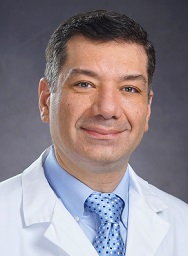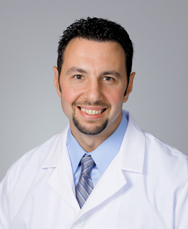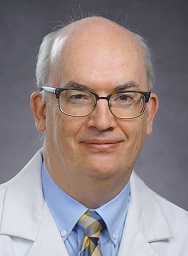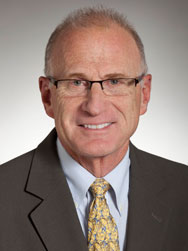Many people experience heartburn symptoms from time to time, usually after eating a large meal or when lying in bed. Occasional heartburn is common and usually no cause for alarm. However, if you suffer from mild episodes at least twice a week, or from moderate-to-severe episodes at least once a week, you may have gastroesophageal reflux disease (GERD).
GERD is a chronic condition in which stomach acid flows upward into the esophagus. Typically, the lower esophageal sphincter muscle opens when food or drink is ingested, allowing it to travel into your stomach, and then closes again. GERD is caused when the lower esophageal sphincter is relaxed or weakened, allowing a backwash of stomach acid into the esophagus.
GERD can not only cause discomfort and digestive issues but, if left untreated, can lead to serious health concerns, such as esophageal ulcers, Barrett’s esophagus (a precancerous condition), and esophageal cancer.
Why Choose the Cooper Digestive Health Institute?
At Cooper University Health Care’s Digestive Health Institute, our team of 14 nationally recognized gastroenterologists offers a level of expertise and clinical excellence that is unmatched in South Jersey. As part of a leading academic medical center, our digestive health experts provide a range of comprehensive services to meet your needs, from general gastrointestinal (GI) health and routine screenings to complex GI conditions, including cancer.
Additional advantages:
- Advanced diagnostic testing and innovative treatments, including the latest generation of medications and surgical options
- Convenient outpatient locations in Camden, Gloucester, Burlington, and Salem counties
- State-of-the-art endoscopy centers in Camden, Mount Laurel, and Willingboro accredited by the American Society for Gastrointestinal Endoscopy
- Exceptional patient satisfaction scores for physician communication and quality of care
- Gastroenterologists on staff at MD Anderson Cancer Center at Cooper as part of our multifaceted team approach to cancer care and treatment
Symptoms of GERD
- A burning sensation in the chest
- Discomfort in the chest
- Regurgitation of food or acid
- Hot, sour, or acidic-tasting liquid in the back of the throat
- Increased salivation
- Feeling a lump in your throat
- Problems swallowing
- Asthma
- Disrupted sleep
- Chronic cough
If you are experiencing any of these symptoms more than twice a week, or if you have been diagnosed with GERD and are taking prescription medications without relief, it is time to schedule an appointment with a gastroenterologist.
Find Relief With a Cooper Gastroenterologist
It’s important to be proactive in your managing your digestive health to avoid serious health conditions. It’s equally important to choose a physician with the right expertise who will work with you to create a personalized plan of care that best meets your needs. Our gastroenterologists at the Digestive Health Institute are here for you.
Our Team



Joshua P. DeSipio, MD
- Gastroenterologist
- Director, Esophageal Disorders Program
- Director, Performance Improvement
- Co-Director, Aerodigestive Program
- Co-Director, Barrett's Esophagus Center


Adam B. Elfant, MD, FACG
- Division Head, Gastroenterology and Liver Diseases
- Interventional Gastroenterologist
- Advanced Luminal Endoscopist
- Associate Professor of Medicine







Apeksha Shah, MD
- Co-Director, Gastrointestinal Bleeding Center
- Assistant Director, Gastroenterology Clinical Research
- Advanced Luminal Endoscopist
- Gastroenterologist

Yize Richard Wang, MD, PhD, AGAF
- Gastroenterologist
- Associate Director, Inflammatory Bowel Disease Center
